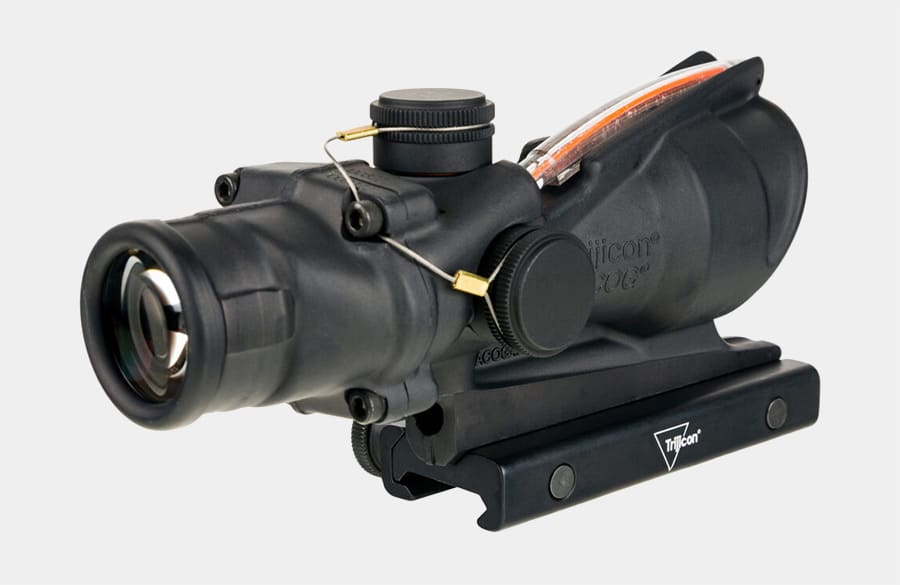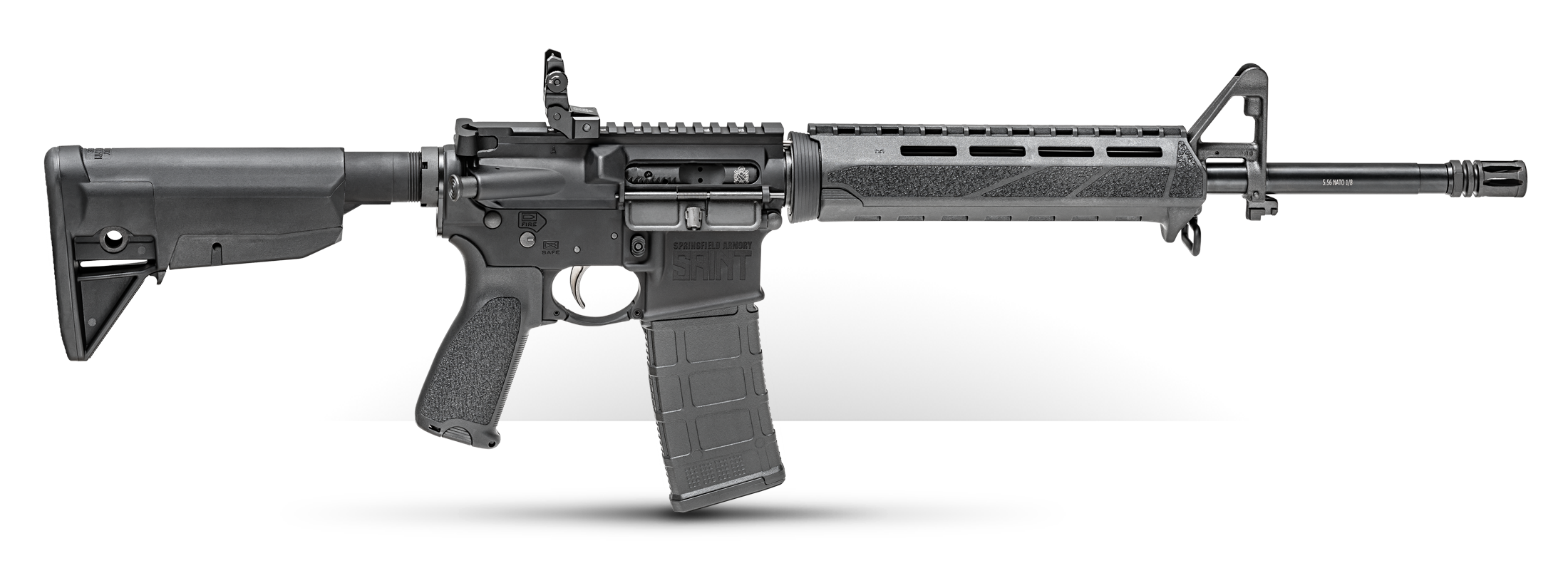In 1987, the world of tactical optics changed forever. Trijicon released the TA01 ACOG, with ACOG standing for “Advanced Combat Optical Gunsight”. It proved to be a major advantage for our troops, and still influences tactical optics design today.
The ACOG is a prismatic telescopic sight originally designed for the M16 and M4 family of rifles. Though Trijicon offers a wide variety of options for a wide range of uses, those earliest TA01 sights featured a sealed housing and a fixed 4×32 magnification.
[Don’t miss our Trijicon ACOG review.]
Later versions incorporated either an external light pipe to power the optic in daytime, or a battery-powered reticle. Those first TA01’s included a built-in tritium phosphor that illuminated the reticle even in hard dark. Lamentably, these illuminating elements invariably dim over time. They’re typically usable for 10 to 15 years from the date of manufacture.
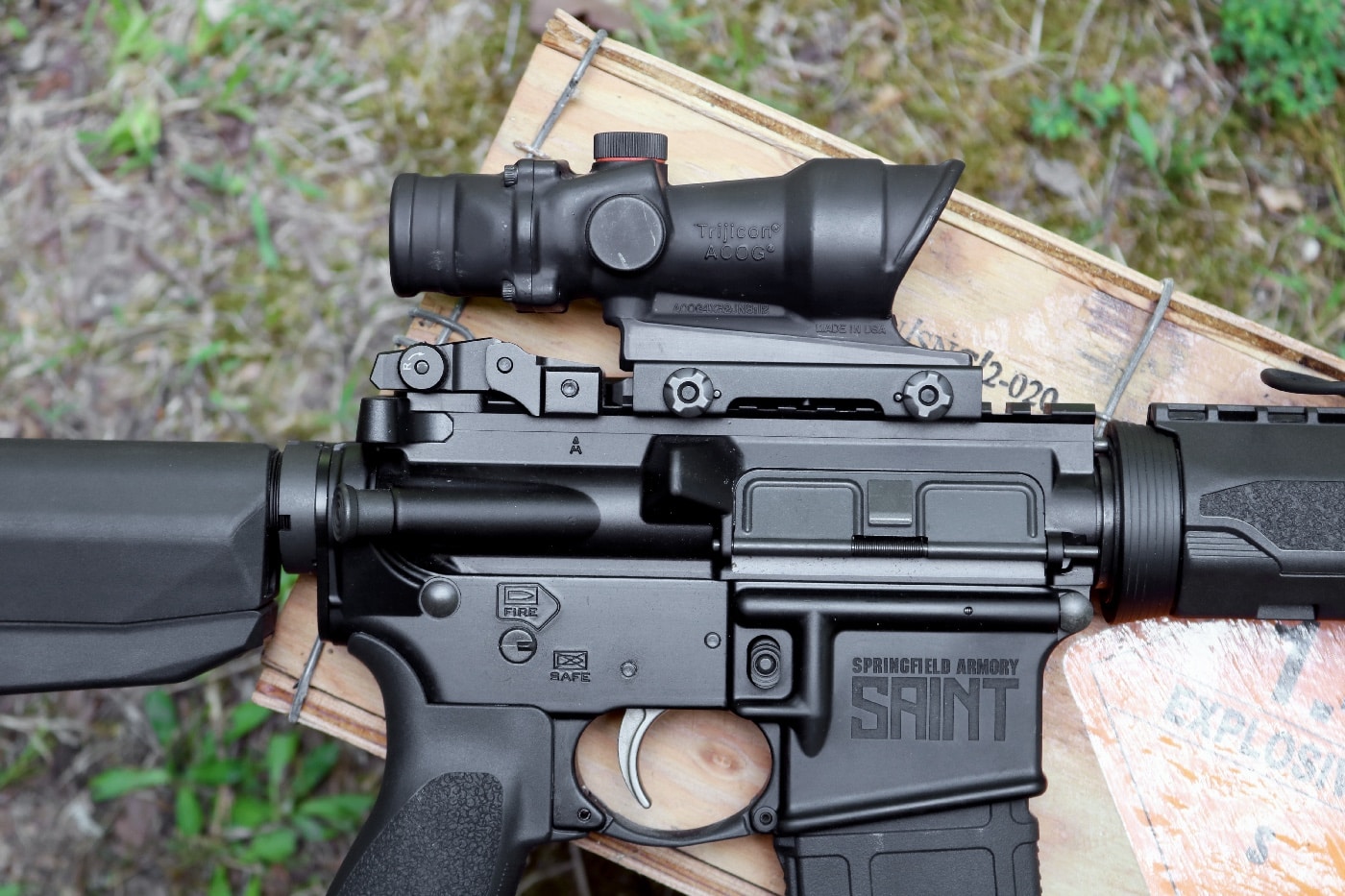
As the ACOG has been in service for nearly 40 years, there are dozens of different variations. Reticles can be had with bullet drop compensation or inverted chevrons. Some variants include back-up iron sights on the top of the housing. Nowadays, they often incorporate a dedicated micro red dot for work that’s up close and personal.
How Does It Work?
At its heart, the ACOG is just a really nice, nearly indestructible 4X tactical optic. However, each ACOG also includes features designed to facilitate the use of the Bindon Aiming Concept (BAC). The BAC is named after Trijicon’s founder Glyn Bindon.
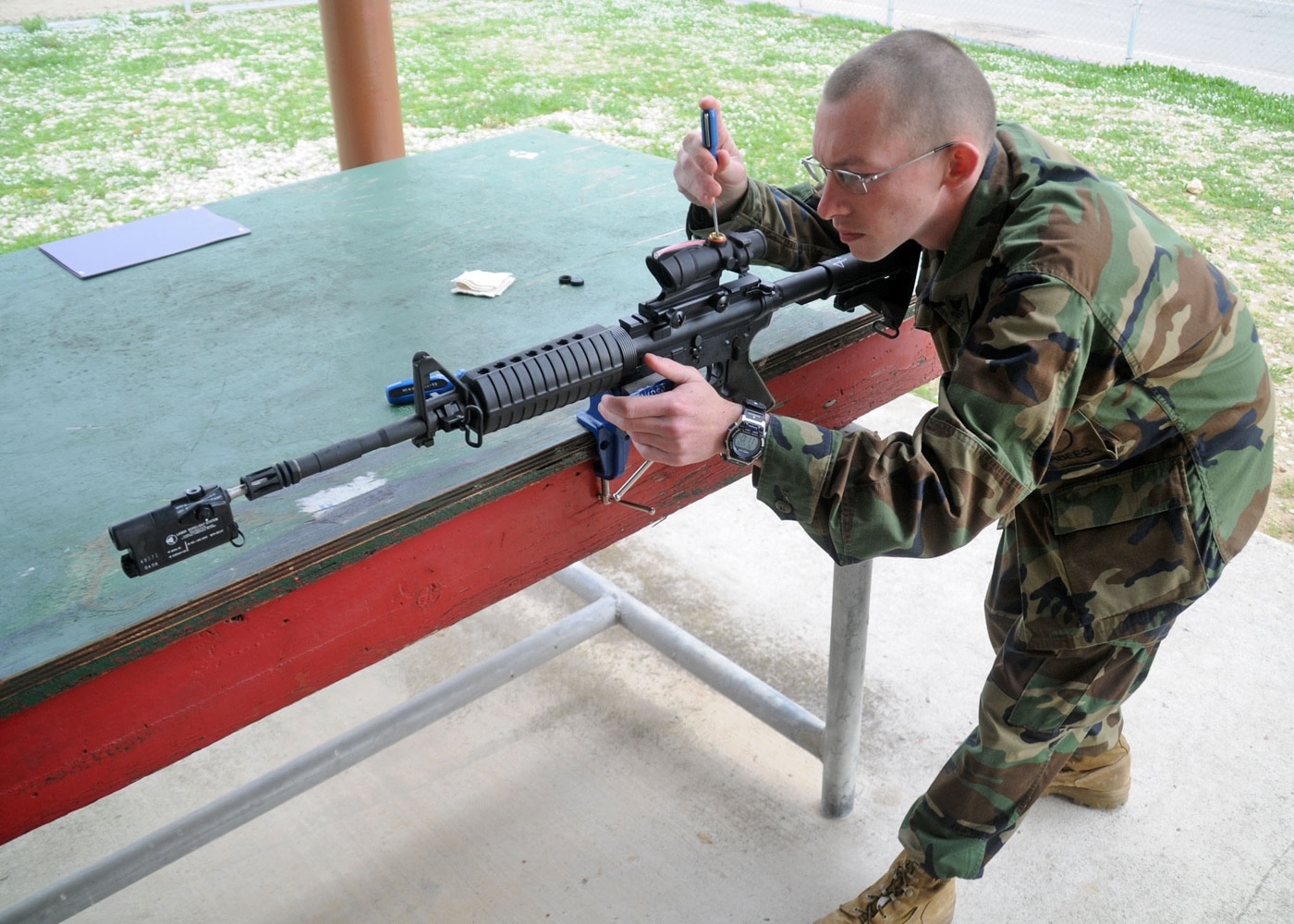
At its heart, the BAC involves keeping both eyes open, such that the dominant eye visualizes the illuminated reticle while the non-dominant eye scans the surrounding area. If the reticle is sufficiently bright, the BAC allows the ACOG to behave a bit like a heads-up display in a fighter plane. As you index the firearm, the reticle follows your gaze and subsequently directs the fall of rounds.

The end result offers unprecedented precision and flexibility, both up close and out a ways. When I wore the uniform, we qualified using an M16A1 with iron sights out to around 300 meters. Back then I could reliably shoot expert because I could clearly see that far with my young eyes. Nowadays that is just no longer the case. Whether your peepers are 17 or 71, the ACOG is the great equalizer.
A Lifelong Quest
I lusted over an ACOG myself for literally decades. However, they are a serious investment. You don’t have SAS operators decrying your products as the best in the world on the cheap. A base model TA01 nowadays sells on Amazon for about $1,200. The top-end version with a dual-illuminated reticle, light pipe, and external micro red dot will set you back $2,485.
Before I could purchase a new one, I discovered an original TA01 from a law enforcement auction for $360. It was too good a deal to pass up. While the tritium lamp had long since burned out, it was in great shape. For a fee, Trijicon will tear down your ACOG and replace the tritium, by the way.

Practical Tactical
I mounted my ACOG up on my trusty Springfield Armory SAINT and hit the range to see what all the fuss was about. While the illuminated reticle on my example has long since gone the way of the dodo, the ACOG nonetheless remains a simply superb magnified optic. The glass is perfect, and the particulars sublime.
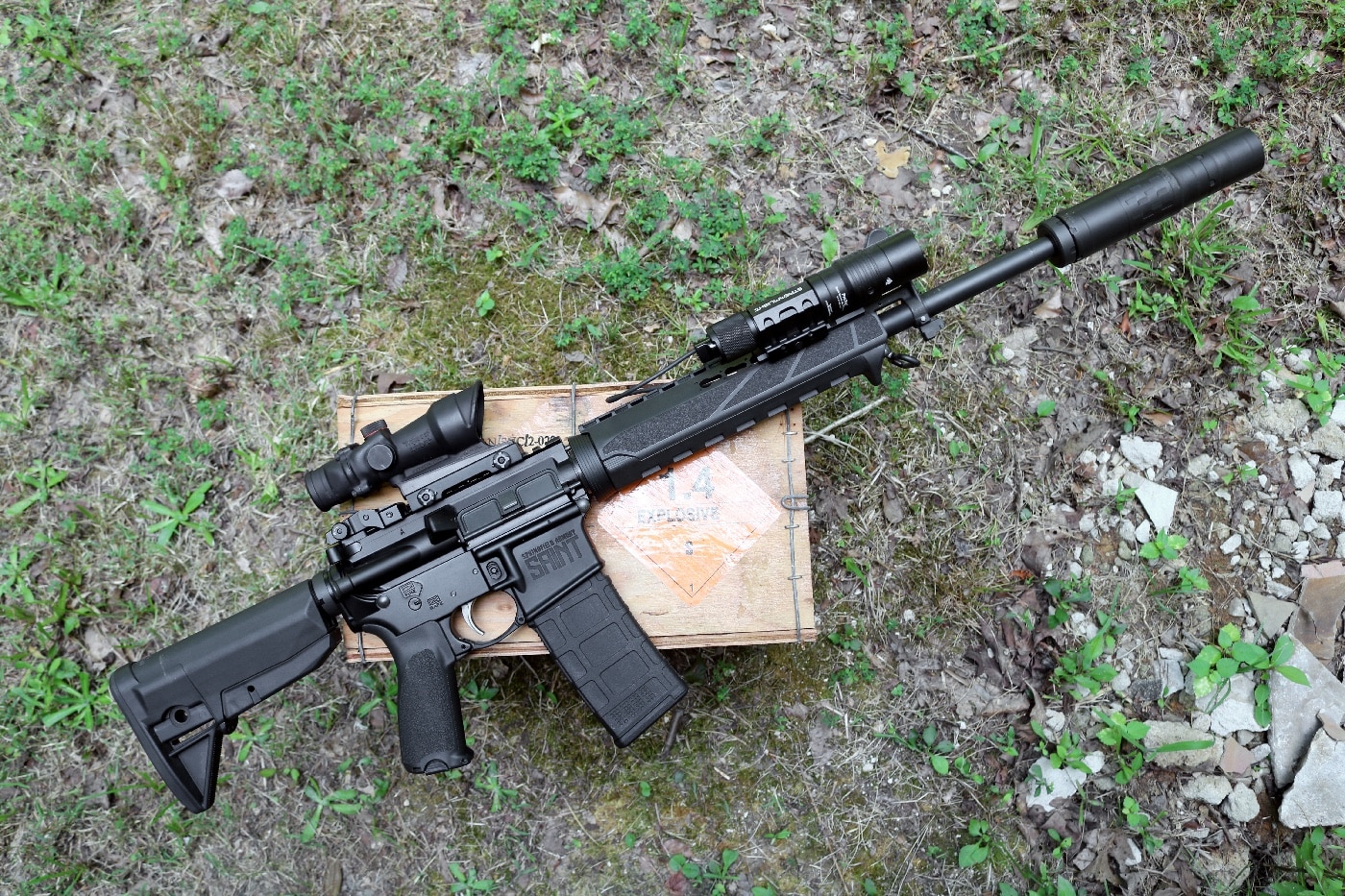
The ACOG made me prickly out markedly farther than might ever have been the case unaided. At half a kilometer I could pick out details of targets. At football field-length distance, I could make precision shots I never could have made with iron sights alone.
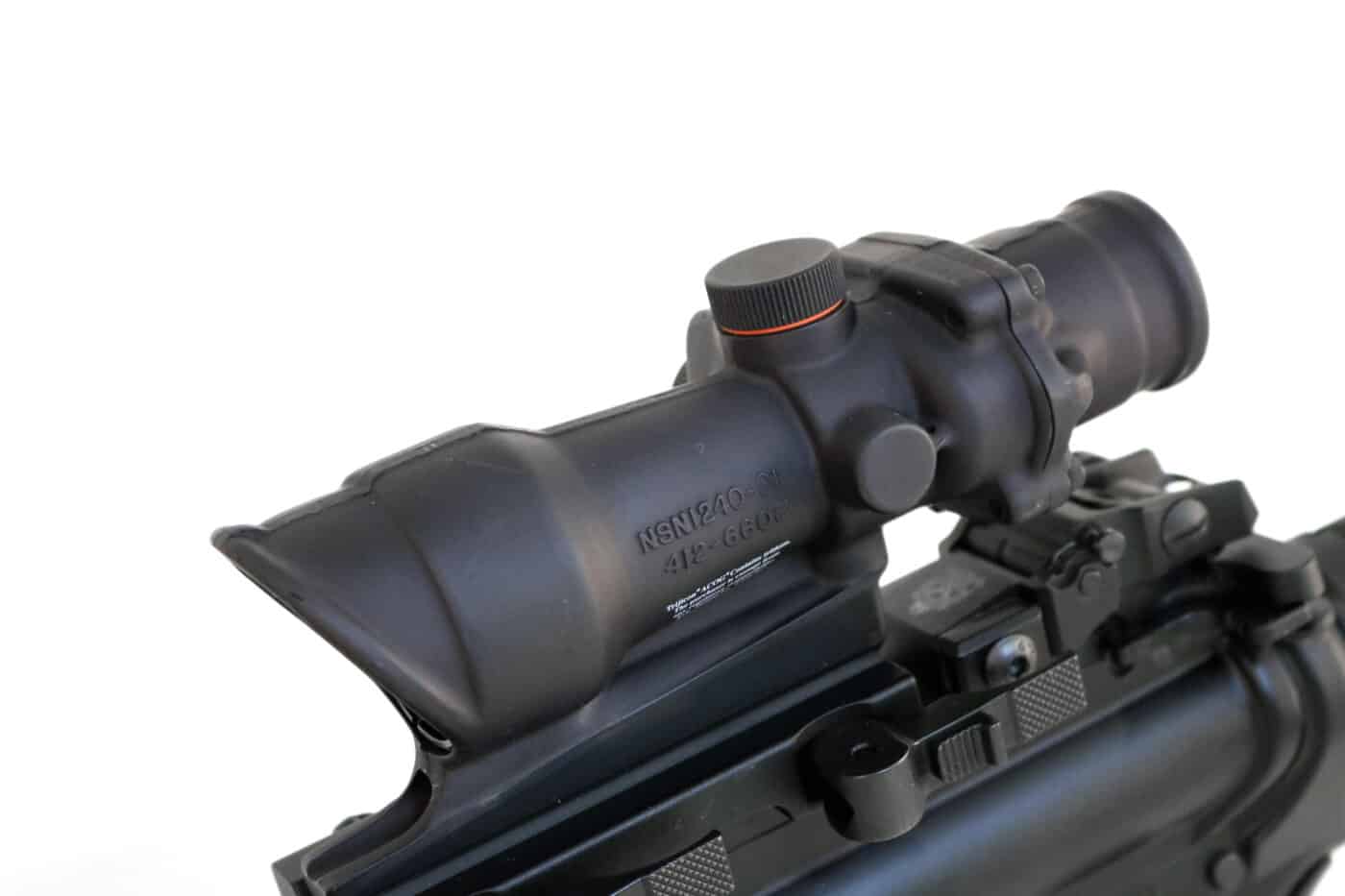
Denouement
Everyone with whom I have ever spoken who used an ACOG for real in Iraq or Afghanistan adored it. Close-range engagements are faster, while long-range shooting is made markedly more precise. None of the ACOG family is cheap, but true quality never is.
Editor’s Note: Be sure to check out The Armory Life Forum, where you can comment about our daily articles, as well as just talk guns and gear. Click the “Go To Forum Thread” link below to jump in!
Join the Discussion
Featured in this article
Read the full article here



